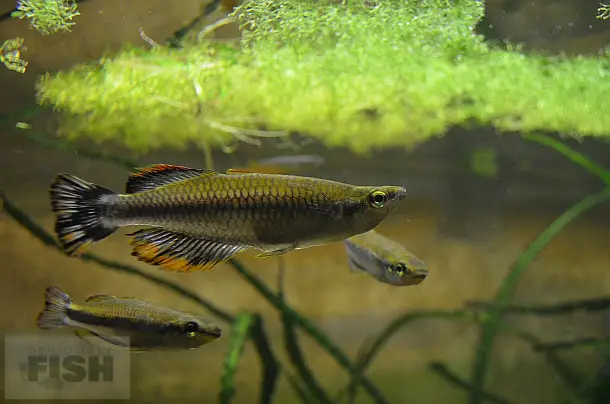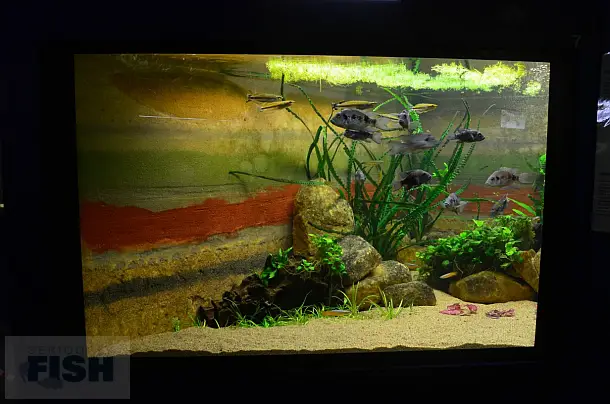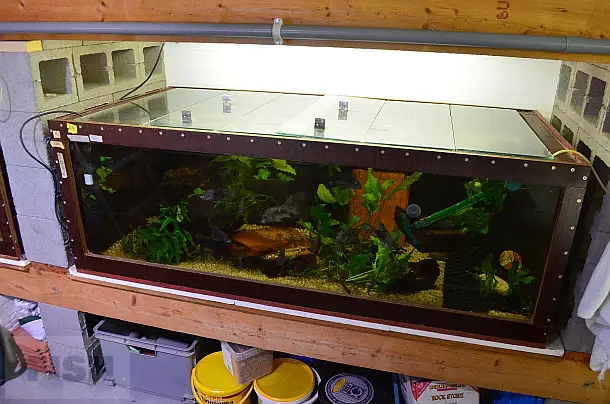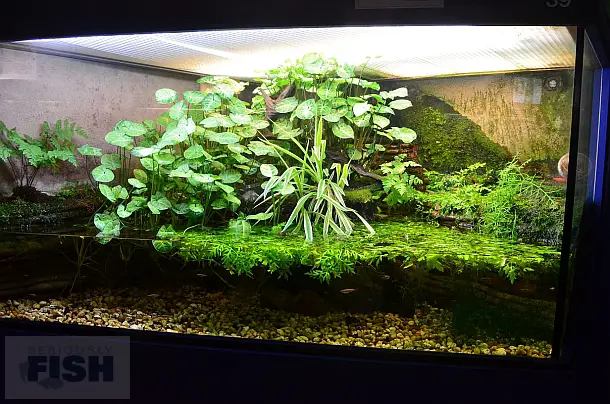Doing Things Their Way
The Aquarium of Brussels is a hidden gem in the Belgian capital…
In contrast to our usual waffle this experiment blog post is going to be heavy on photos and low on word count, so let’s see how it goes.
While visiting Belgium a couple of weeks ago I was lucky enough to spend an enjoyable few hours at the wonderfully impressive Aquarium of Brussels.
It’s possibly the cleanest such set up I’ve ever seen, and puts many zoos and larger ‘chain’-style public aquaria to shame.
Cooler still, the vast majority of installations are dedicated to freshwater fish and amphibians with a number of rare and endangered species among them.
They also have an off-public area which is equally as spotless as the main displays and lots more endangered fish are being bred and raised there.
A few pics should help illustrate what I’m talking about…
Ptychochromis oligacanthus from Madagascar:
Bedotia sp. ‘Namorona’ is an undescribed (and huge!) species restricted to parts of the Namorona River, also in Madagascar. The zoo are having trouble breeding these so any tips would be much appreciated.
Malagasy display with Bedotia sp. ‘Namorona’, the killifish Pachypanchax sakaramyi and Ptychochromis oligacanthus.
Fundulopanchax display – great to see killis getting some attention.
Iberian ribbed newt, Pleurodeles waltl. These are being bred in quite large numbers behind the scenes…
…speaking of which. Here’s one of the ‘backstage’ area tanks with the goodeid Ilyodon furcidens.
Goodeids, newts and poison frogs, all breeding at the aquarium.
More Ptychochromis oligacanthus. The tank itself is interesting as like all of those at the aquarium it’s made of a type of marine wood with a glass front panel.
Young cichlids growing on.
Quarantine for future display fish.
Breeding and raising tanks for endangered species containing the Corfu killifishValencia letourneuxi, various cichlids, Melanotaenia spp., goodeids, etc.
This area must require as much upkeep as the display area to maintain these standards and the whole set-up is a massive credit to the managers and staff.
Back in the main aquarium, this display contained endangered goodeids.
Finally, a lovely little paludarium housing a breeding population of the Oriental fire-bellied toad, Bombina orientalis plus some White Cloud Mountain minnows in the water.
Aside from the standard of husbandry and attention to detail on display there were other things to admire here.
For example, this is a relatively small, low budget project funded by the Belgian National Lottery, yet is Brussels’ only public aquarium and on a Saturday afternoon was busy with a number of larger kids’ groups inside.
The aquarium offer audio tours in several languages which offer information about the various animals on display including the reasons why they are being maintained in the case of endangered species, while kids are able to undertake a series of activities on the way round.
Some of these involve ticking off the species on display, or even drawing them, and it was the first time I’d heard young children talking excitedly about goodeids in a public aquarium, for example.
Since the majority of such aquaria in the world tend to feature an identical series of displays (coral reef, clown fish, ray touch pool, shark tunnel, piranhas, Amazon display, rinse, repeat) this modest yet inspiring place is well worth a visit.
It was brilliant to see a focus on freshwater rather than marine species given that the ongoing environmental crisis affecting their habitats around the planet continues to be largely ignored by conservation groups and mainstream media alike.
Matt Ford
Aquarium of Brussels home page: http://www.aquariologie.be/
Category: Articles, Conservation | Tags: aquarium, Aquarium de Bruxelles, Brussels, conservation, freshwater, goodeid, killifish | 2 comments »

















June 24th, 2013 at 6:57 am
Great blog! Great to see focus on freshwater. Some of the plants & displays are amazing!!
June 28th, 2013 at 12:00 pm
Glad you enjoyed it Matt. 🙂